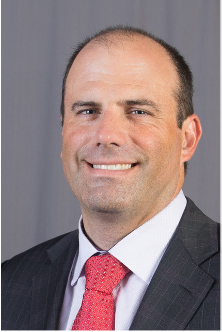Fri, 27 May, 01:50 - 03:00 UTC
What Is Next in Signal Processing for MIMO Communication?
Chair: Sumei Sun, Institute for Infocomm Research, A*STAR, Singapore

Abstract
In the last 20 years, MIMO wireless communication has gone from concept to commercial deployments in millions of devices. Two flavors of MIMO widely researched in the Signal Processing community -- massive and mmWave -- are key components of 5G. In this talk, I will explain why MIMO communication has remained such a vibrant topic of signal processing research especially as systems have gone to millimeter wave and higher carrier frequencies. Then I will speculate on several directions for future MIMO research. I will talk about how other advancements in circuits, antennas, and materials may change the models and assumptions that are used in MIMO signal processing, leading to new algorithms and signal processing developments in the future.
Biography
Robert W. Heath Jr. is a Distinguished Professor in the Department of Electrical and Computer Engineering at the North Carolina State University (NC State). He is co-developer of the 6GNC initiative on next generation cellular communications at NC State. He is also the President and CEO of MIMO Wireless Inc. He is a Highly Cited Researcher who has published broadly in the areas of signal processing for wireless communications, with an emphasis on MIMO wireless communication systems for 4G, 5G and 6G cellular communication systems. His recent work includes algorithms for millimeter wave MIMO communications, circuit-aware communication theory, joint communication and radar, V2X, and machine learning for wireless communications. He authored “Introduction to Wireless Digital Communication” and co-authored “Millimeter Wave Wireless Communications” and “Foundations of MIMO Communications.”
Prof. Heath is a recipient of several awards including the 2012 Signal Processing Magazine Best Paper award, a 2013 Signal Processing Society best paper award, the 2014 EURASIP Journal on Advances in Signal Processing best paper award, and the 2014 Journal of Communications and Networks best paper award, the 2016 IEEE Communications Society Fred W. Ellersick Prize, the 2016 IEEE Communications Society and Information Theory Society Joint Paper Award, 2017 IEEE Marconi Prize Paper Award, the 2017 EURASIP Technical Achievement Award, the 2019 IEEE Communications Society Stephen O. Rice Prize, the 2019 IEEE Kiyo Tomiyasu Award, and the 2020 IEEE Signal Processing Society Donald G. Fink Overview Paper Award. He was EIC of IEEE Signal Processing Magazine from 2018-2020. He is a current member-at-large of the IEEE Communications Society Board-of-Governors (2020-2022) and a past member-at-large on the IEEE Signal Processing Society Board-of-Governors (2016-2018). He is a licensed Amateur Radio Operator, a registered Professional Engineer in Texas, a Private Pilot, a Fellow of the National Academy of Inventors, and a Fellow of the IEEE.
